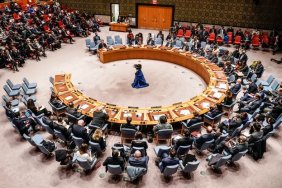Sexual violence laws in Georgia, Kazakhstan, Kyrgyzstan, and Uzbekistan are falling “well below international human rights standards” in both how their legislation is written and implemented, a report by Equality Now, an international women's rights organisation, said on Tuesday.
The report by the organisation that focuses on using the law to protect and promote the rights of women and girls around the world, stressed that in Ukraine, the law had recently been strengthened, but problems persisted with how provisions were being administered.
“As a result of failures to adequately criminalize and prosecute rape in all these countries, many perpetrators are escaping punishment”, the report said.
Pointing to limited legal definitions of rape, the report noted Georgia, Kazakhstan, Kyrgyzstan, and Uzbekistan had criminal codes that required violence in order to prove rape, “and this is narrowly interpreted as involving physical violence”.
“Such a limited definition of rape based on the use of force instead of a lack of consent effectively puts the onus on victims to prove they physically resisted an assault. This fails to recognize that people respond to rape in various ways, and demanding such an onerous level of proof enables many perpetrators to avoid criminal liability, as often there is no available evidence of physical injury”, it said.
Although criminal codes in those countries included the ‘threat of violence’, the organisation pointed out in practice, the definition was generally limited to threats of murder or inflicting serious bodily harm.
Equality Now’s Eurasia Regional Representative Tamar Dekanosidze, co-author of the report and a human rights lawyer, explained: “rape is inherently a violent act, and there should be no requirement in law to demonstrate that a perpetrator used additional violence or force. Instead, the use or threat of violence should be viewed as an aggravating factor that increases the severity of the crime.”
Using the report, Equality Now urged all countries in Eurasia to amend their legal definition of rape in accordance with international human rights standards so that lack of consent was the essential element of the crime, and it was interpreted as being given voluntarily and genuinely by a person exercising free will.
It stressed cases should be assessed “on an individual basis” considering the surrounding context.
Praising Ukraine’s move to amend its criminal code in 2019 to strengthen it in line with international human rights standards, Equality Now said the country’s rape law currently allowed proof that a sexual act was committed without the voluntary consent of the victim.
“This progress is commendable, but problems with implementation need to be swiftly addressed. Local experts have raised concerns regarding insufficient understanding among Ukrainian law enforcement as well as the general public about the law’s new consent-based definition and practical applications”, the report said.
Whilst recognising that Russia’s war against Ukraine “poses extensive wide-ranging challenges”, the organisation noted it remained “critical” that Ukraine “properly implemented” its “progressive new legislation” by prosecuting and punishing non-consensual sexual acts, and shifting from a focus on the use of physical force or threats when bringing charges.
The report highlighted “comprehensive legal and procedural reforms, including the introduction of consent-based definitions of rape, are urgently needed in Eurasian countries to enhance access to justice for victims of sexual violence and to improve liability for perpetrators”.






